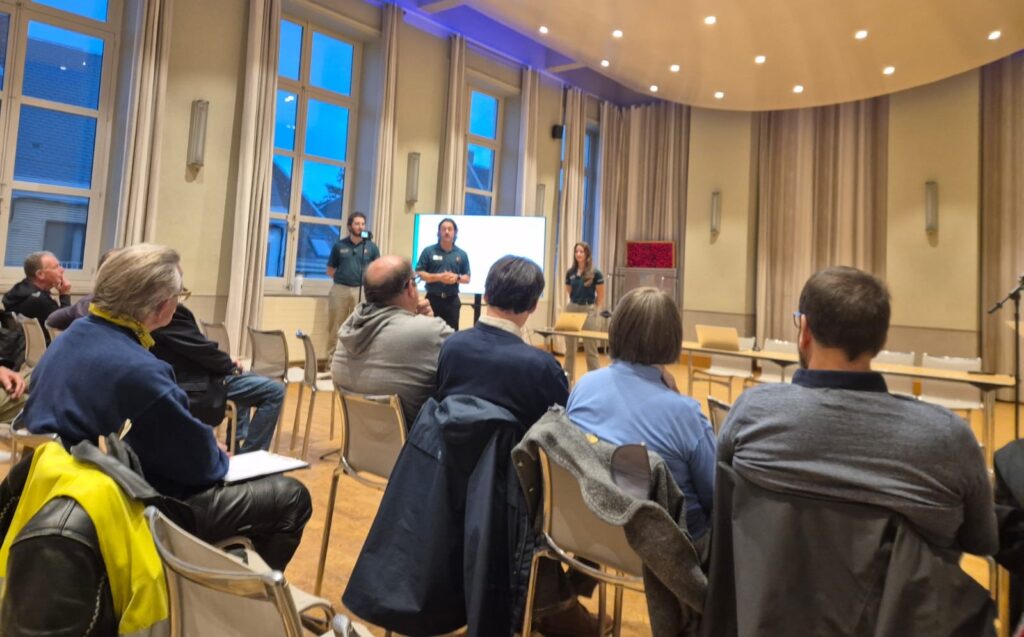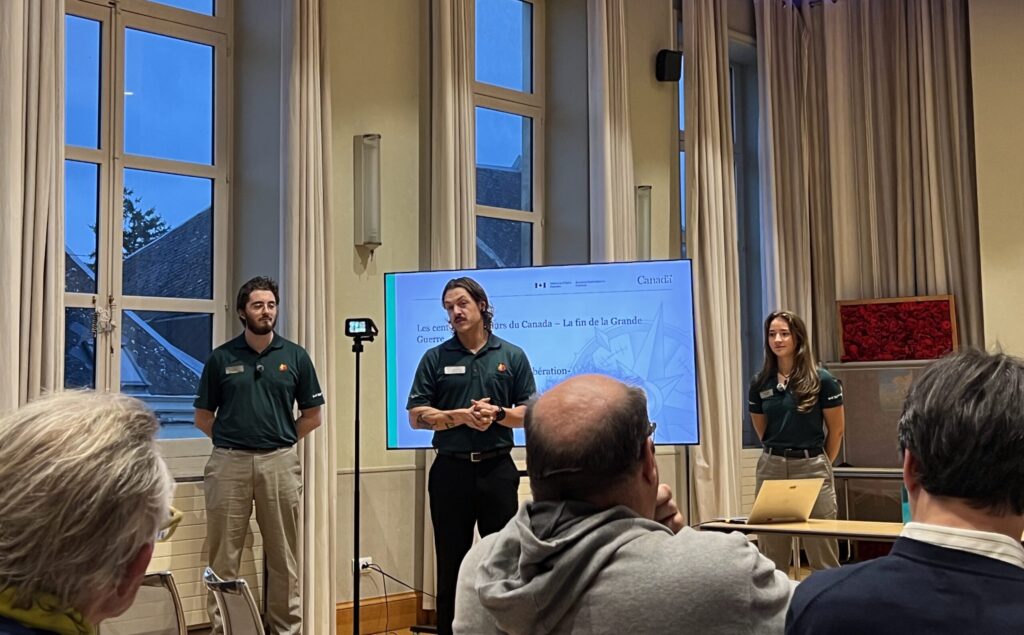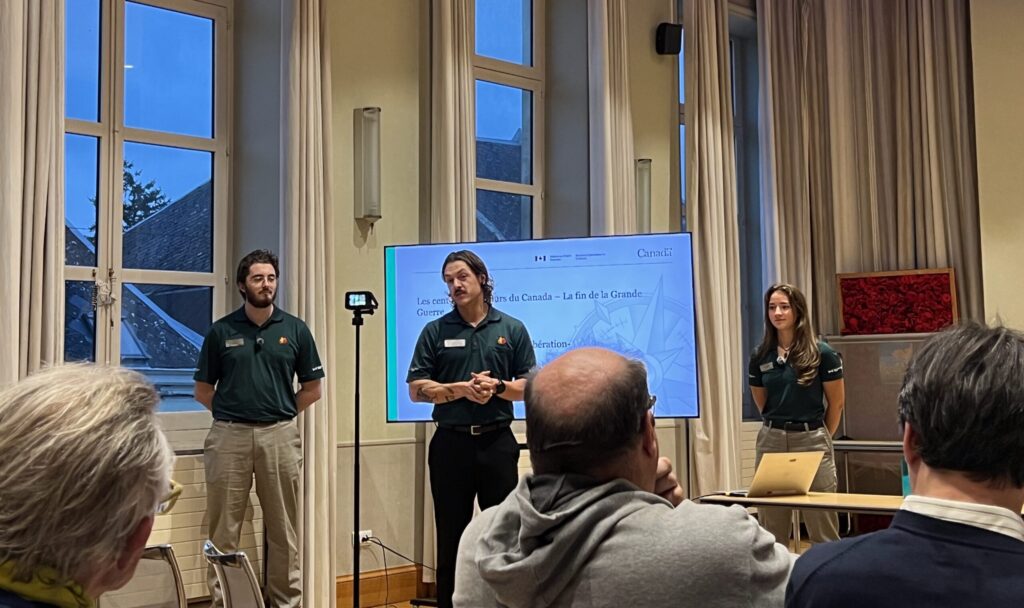On Thursday, October 16, the New Zealand Liberation Museum – Te Arawhata had the pleasure of welcoming our Canadian friends from the Canadian National Vimy Memorial for a conference dedicated to the Hundred Days Offensive — a series of decisive battles fought by the Allied forces between August and November 1918.
This campaign marked the final phase of the First World War. Like our New Zealand boys, the Canadian troops played a crucial role in the offensive, pushing back the German lines in key battles such as Amiens, Arras, and Cambrai, leading up to the liberation of Mons on November 11, 1918.

The conference was led by Jacob Neil, a representative of the Vimy Memorial, along with Finn and Lily Blue, two young student guides recruited through the Federal Student Work Experience Program (FSWEP).
Both are currently serving as student guides at the Canadian National Vimy Memorial and the Beaumont-Hamel Newfoundland Memorial.
Every four months, bilingual Canadian students from across the country are selected to share the history and memory of Canadian soldiers on the Western Front.
This remarkable programme, established in 1963, allows young students to walk in the footsteps of their fallen soldiers – maintaining a living connection between memory, youth, and transmission.

Finn, visibly moved to reconnect with his French roots, expressed his pride in representing his country and contributing to the preservation of this shared history.
Lily Blue, originally from the island of Newfoundland, now part of the canadian province of Newfoundland and Labrador, spoke with emotion about the unique story of the Newfoundland Regiment, which fought separately from the Canadian troops. During the First World War, Newfoundland was not yet part of the Canadian Confederation and held dominion status, just like New Zealand. In recognition of its courage and decisive role during the final offensive in the Ypres region, King George V granted the Newfoundland Regiment the honorary title of “Royal,” making it the Royal Newfoundland Regiment, and the only non-British unit to carry the Royal name.
Their stories, both historical and deeply human, profoundly moved the audience. Many parallels were drawn between the experiences of Canadian and New Zealand soldiers — bound together by courage, loss, and solidarity.
Their stories, both historical and deeply human, profoundly moved the audience. Many parallels were drawn between the experiences of Canadian and New Zealand soldiers — bound together by courage, loss, and solidarity.
